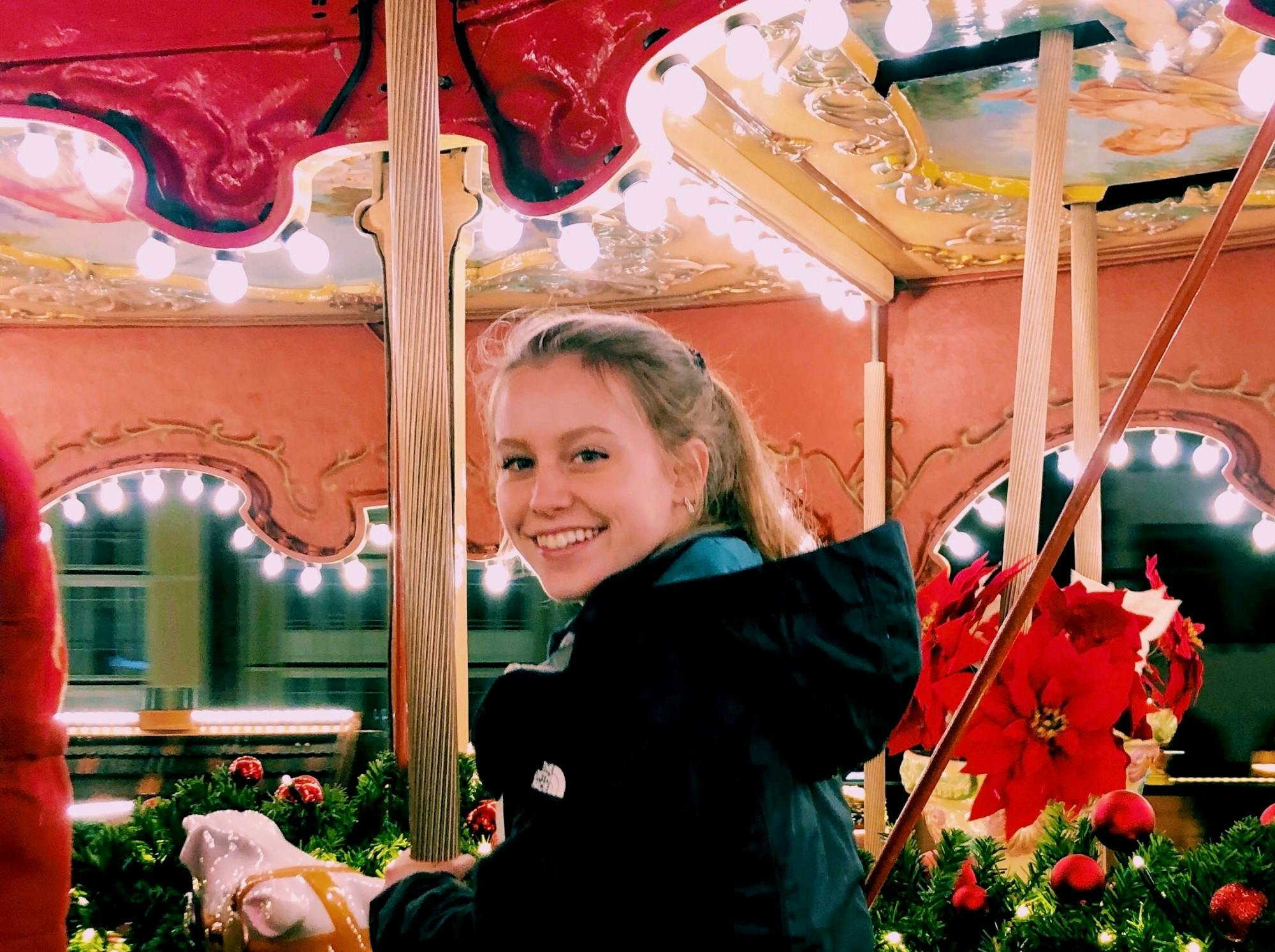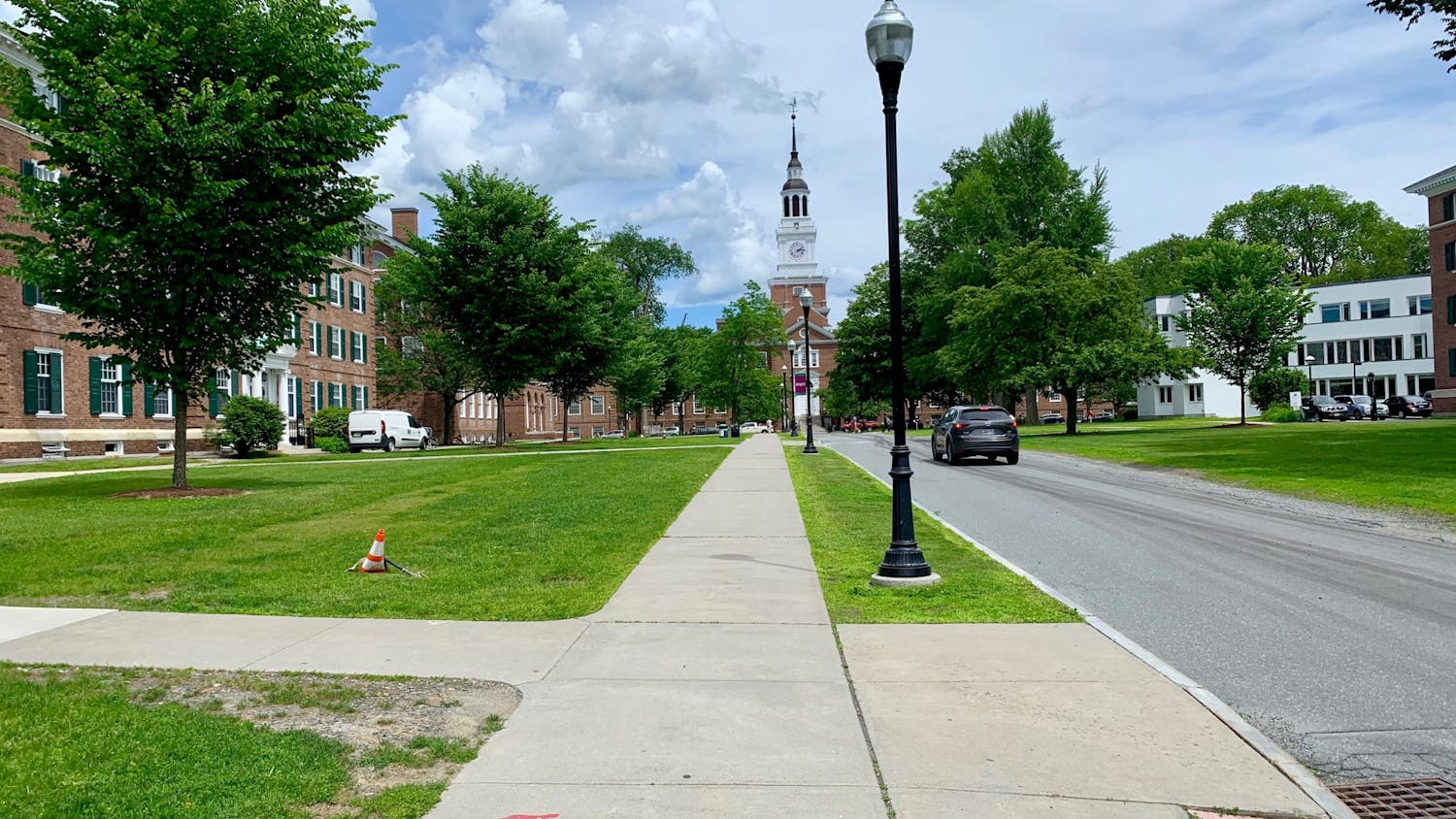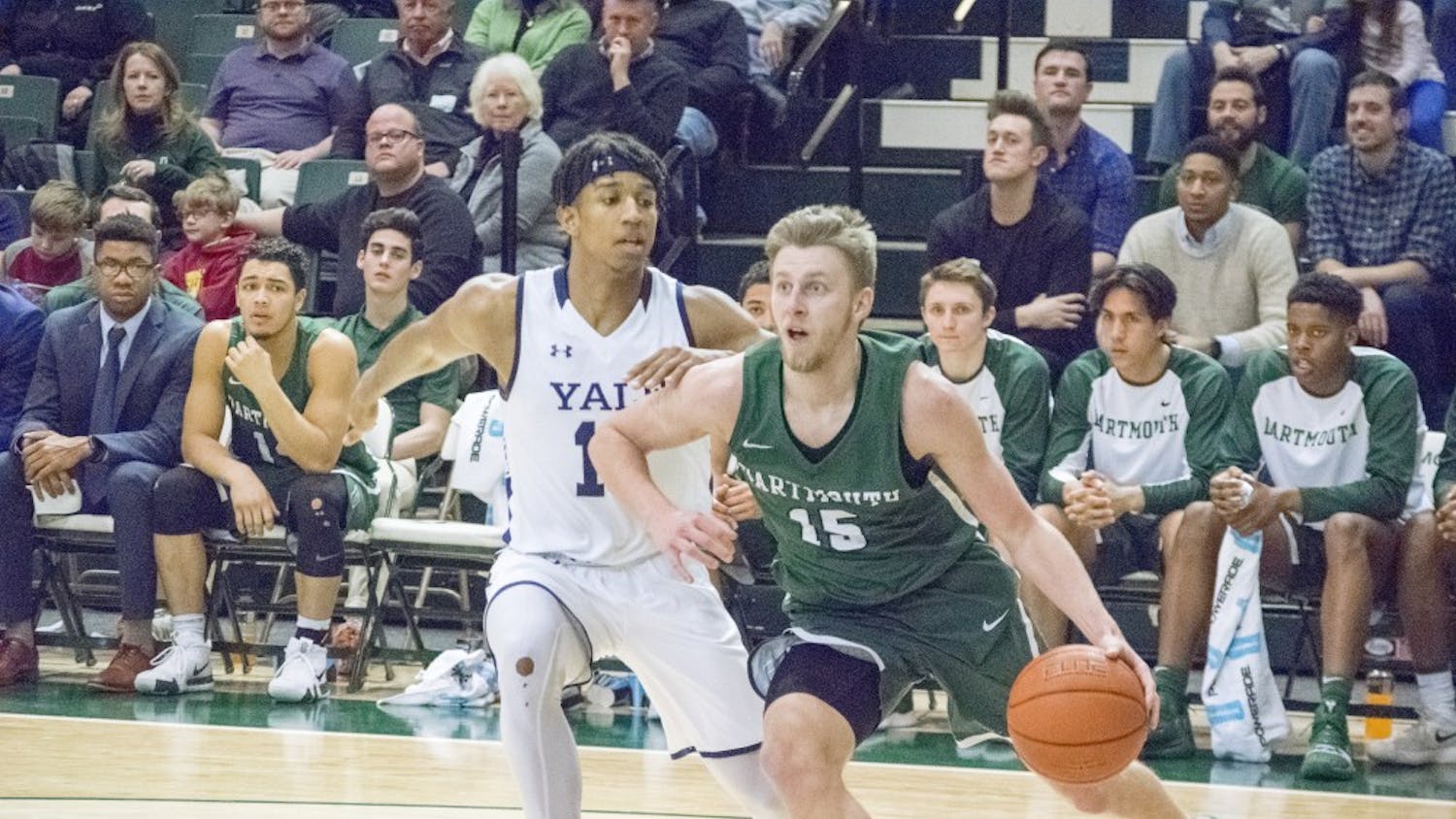One hallmark of the Dartmouth term is that it’s doled out in portion-controlled weeks, one after the next. Week one is for adjustment; week two is for “catching up” with once-per-term friends; week three begins the long and terrible blur of midterms that never end; week six is the termly weekend extravaganza; week eight is for formals; week nine is for wishing you were somewhere else.
It feels almost Sisyphean, living in a countdown that resets every time it reaches zero. We have the same parties with the same themes on the same days of the same weeks. We have the same small-talk conversations each week of each term (“I can’t believe it’s already week [x]!”). The Dartmouth world — the world I know — is a world where time is divided up and packaged into candy-colored blocks. What was, what will be and what’s now, all color-coded and formatted with precision, proudly on display on glossy screens.
The world we live in today is a world where anyone who says they know for sure what they’ll be up to in two months is probably lying to themselves.
That’s a hard pill to swallow, especially for someone like me, who finds uncertainty deeply unsettling. At first I hated it. A lot. To fill my time, I ran. I did yoga. I baked. I got experimental with my cooking. I worked on my thesis. But my attempts at distractions were tinged with uneasiness — a sort of vague, inescapable malaise.
I know that I am privileged, that not everyone is so lucky as to have time to fill. I know that the level of uncertainty I have faced is nothing compared to those whose lives have been on the line on a daily basis or to those who don’t know when they will next be fed. My discomfort is just a symptom of the sudden violation of my expectations for my senior spring and my post-grad years. Has it been terrible? Yes. Have I experienced any direct threat to my person or livelihood? No.
On day 20-something of solitude, as I prepared my excessively elaborate meal for one (on this occasion, a twice-baked potato), I began to rethink my relationship with anticipation.
I spent a lot of my time at Dartmouth “getting through it,” rather than enjoying it. By that, I mean that I spent a lot of time fixating on whatever was next. The next term. The next week. The next weekend. The next appointment on my social calendar. I jumped from plan to plan and term to term, reassured by the degree of certainty that came with knowing what to expect. That kind of life is not fulfilling.
The night of my potato-dinner epiphany was a Friday night. Had I been at Dartmouth, I would have had plans (I would have made sure that I had plans). I may even have had an itinerary (I would have at least felt the need to have an itinerary). I would have been gearing up for a long night of standing in fraternity hallways talking to people I hardly knew and hardly liked. I would have had a night that I could tell people about while standing in the KAF line the following morning. More likely than not, I would not have had fun. I thought long and hard about this as I stared at my singular potato. It was alone yet proud, comically dwarfed by my carefully preheated oven, ready for its 80-minute double roasting. And I started to cry.
Last summer, I read “Infinite Jest” by David Foster Wallace so that I could say that I read “Infinite Jest” by David Foster Wallace. (This is exactly the sort of behavior that I want to discourage through this essay.) On the whole, the book was pretty dry and far too long, but I have a few quotes saved in my iPhone notes. One of them says, “An endless Now stretching its gull-wings out on either side of his heartbeat.”
That quote comes from a passage detailing a heroin addict’s experience with withdrawal — that’s a level of pain that I do not, and hopefully will never, understand. But I like the quote because I think that it beautifully captures the pain of everyday existence. Grief, stress and loneliness can feel infinite, in a way that no level of planning will ever be able to erase.
In this time of uncertainty, the quote has taken on a new meaning for me. It’s the perfect inverse of my iPhone calendar, which represents each moment as a thin red line wedged between color-blocked, wide-reaching expanses of past and future. Now, however, with the past a distant memory and the future a fickle ambiguity, the present swallows us whole.
This spring is the closest I’ve come to surrendering myself to the endless Now, simply because doing so is the only option available to me. I wish I had done it sooner. I wish I had spent more time securing my present happiness, and I wish I had spent less time making plans that I thought might make me happy in the future. I wish I had made more twice-baked potatoes.
It’s a little unfortunate that I needed a global pandemic to push me into the realization that my leap-frogging expectations game was doing me more harm than good. It’s too bad that this is what it took for me to grow comfortable with shifting my attention to the present and spending time with myself. But I’m grateful for the lesson, nonetheless.
To the underclassmen: I hope you do things that make you happy. I hope you eat solo meals and speak your mind and leave the frat party early and dance for no reason and spend time with people who make you a better person. I hope you embrace the present moment. After all, the future is nothing more than a bunch of Nows, squished together. Here’s to the present that lies ahead.
Eliza Jane Schaeffer ’20 is the former engagement editor of The Dartmouth.




